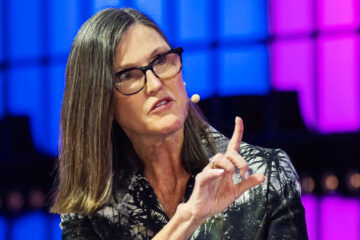Many of us are gearing up for the upcoming Amazon Prime Days, which is slotted for July 16-17 this year.
For many shopping devotees, it’s this hallmark event – not Memorial Day – that marks the official start to summertime fun and enjoyment.
Related: Target sale leaps ahead of Amazon Prime Day with huge savings
After all, what’s not to love about getting everything from coolers to sunglasses to Apple products at a deeper than typical discount?
Time and time again, though, no matter how many products are given the privilege of being put on sale during Amazon’s (AMZN) promotional event, the top selling products tend to be the tech giant’s own devices.
And with such a wide variety of electronics, it’s easy to understand why. Amazon’s owned devices just make life a little easier.
Alexa, Amazon’s voice controlled home assistant, for example, revolutionized how we get things done in our homes. She gives us recipes, tells us jokes, and even reminds us to take the trash out. She’s also compatible with other devices, like Amazon’s smart plugs, so you never have to manually flip a switch again.
The Fire TV makes streaming across multiple services and devices a refreshingly seamless process. The Ring doorbell has helped to deter things like porch pirates and makes for some pretty good viral (and often accidental) social media content. The Kindle makes reading anywhere – yes, including at the beach – accessible, lightweight, and glare free.
Two children using an Amazon Alexa device. Lead.
Amazon
Amazon’s Alexa is popular – but faces competition
For the millions of us who have an Alexa (or two, or three) in the house, we know about the merits of the smart device.
It functions as more than a smart speaker. It’s estimated Amazon has sold well over 100 million smart speakers and it remains the most prolific device in the space. Though its dominant stranglehold on market share may well be waning, it faces fierce competition from the likes of Google and Apple , which both have their own smart home speakers that more or less do the same thing that the Amazon Echo does.
Related: Amazon quietly discontinues a popular product
And while it’s estimated that the smart speaker market size could top $100 billion by 2032, some of that growth may have to be spread out among competitors. Amazon’s smart speaker success has already largely been priced into the tech giant’s valuation, and it’s seeing a slowdown in its smart speaker segment.
More Retail:
Ulta CEO sounds the alarm on a growing problemLululemon releases a first-of-its-kind productTarget store introduces a new ‘over 18’ policyAmazon launches genius new subscription product
In late 2022, for example, it weighed changing or cutting drastically down on unprofitable segments – including its Alexa unit (part of the larger devices division). At that point, the unit employed roughly 10,000 people and brought in a large portion of investment capital but was incurring multi-billion dollar operating losses per year.
Amazon has since been killing off small parts of Alexa, like some its celebrity voice features that a small (but paying) cohort of customers once enjoyed.
Report: Amazon mulls another Alexa change
While millions of us enjoy Alexa now, free of charge (other than the up front cost, which is typically between $40-$150, depending on which model you choose), that may soon come to an end.
According to a new report, Amazon is reportedly considering charging for a paid tier of Alexa, which could cost somewhere between $5-$10 monthly.
Related: Major fast food franchisee files for Chapter 11 bankruptcy
The paid feature would be referred to as “Remarkable Alexa,” and feature some of Alexa’s artificial intelligence capabilities, which critics have long said is lacking and needs to be upscaled more thoughtfully. Amazon has spent the past several years working on beefing up those abilities to make Alexa more user friendly and intuitive.
It’s not clear exactly what changes Remarkable Alexa might feature, though some analysts and tech enthusiasts foresee something similar to OpenAI, Google, and Microsoft’s paid artificial tiers, which offer things like early access to new features or more advanced tools for parsing through data, for example.
No word on when a paid tier for Alexa might roll out, though Reuters reports that Amazon is hoping to roll something out by August.
“We have already integrated generative AI into different components of Alexa, and are working hard on implementation at scale — in the over half a billion ambient, Alexa-enabled devices already in homes around the world — to enable even more proactive, personal, and trusted assistance for our customers,” an Amazon spokeswoman said in a statement.
Related: Veteran fund manager picks favorite stocks for 2024


